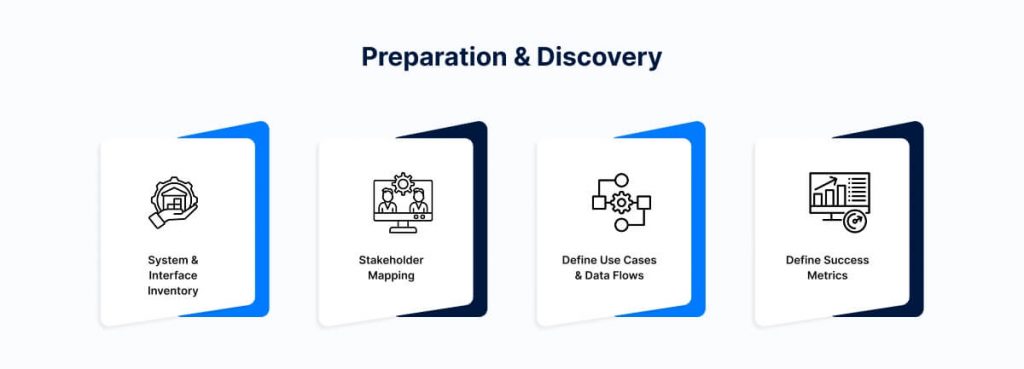AI technologies are now more common in healthcare communication tasks in hospitals and clinics across the United States. These tools help with answering phone calls, scheduling appointments, sending reminders, answering common questions, and helping with symptom checks. By doing these jobs, AI reduces wait times and lets healthcare workers focus on medical tasks. But AI can also cause problems with keeping data safe, earning patient trust, and following ethical rules.
Hospitals in the U.S. must follow strict laws like the Health Insurance Portability and Accountability Act (HIPAA). This law protects electronic patient information. Using AI to handle patient data needs careful control to avoid breaking these rules, which can lead to fines and harm a hospital’s reputation. Besides laws, hospitals must also handle ethical concerns to keep patients trusting their care and to meet regulations.
Prioritizing Data Protection in AI Communication Tools
Protecting data is a key part of making good AI policies for hospitals. Hospitals must make sure AI tools follow HIPAA rules and keep sensitive information safe from hackers or leaks. They should choose AI vendors who agree to protect patient data by signing Business Associate Agreements (BAAs).
Strong cybersecurity steps are needed. These include encrypting data, using secure login methods, tracking actions, and regularly checking for weak spots. IT teams must watch systems all the time to catch suspicious activities quickly. Hospitals should also only collect the patient information they really need for communication to lower risks.
Policies should explain exactly how AI tools get, store, and send data. This helps IT, healthcare workers, and compliance officers know their duties. There should be clear ways to report data breaches and regular training for staff on data privacy and security.
Patients should also understand how their data is protected. Being open about AI use, how data is handled, and security steps builds trust. Hospitals should have rules to inform patients about AI tools and let them give consent or opt out when possible.
Ethical Considerations in AI-Driven Healthcare Communication
Beyond legal rules, ethics are important when using AI in healthcare communication. Protecting patient privacy is the main issue, but others include fair access, avoiding bias, and keeping human contact in care.
Equity in access means hospitals must realize not all patients have good internet or feel comfortable with technology. Some people in rural areas or with low income might find AI tools hard to use. Relying too much on AI could make healthcare less fair for these groups. Hospitals should provide other ways to communicate, like phone calls with real people or in-person help, so everyone gets proper care.
Algorithmic bias happens when AI is trained on data that does not represent everyone fairly. This can hurt certain racial, ethnic, or economic groups by giving wrong or unfair results. Hospitals need to check AI tools for fairness, explain how AI is used, and keep watching for bias after using the tools.
Maintaining human involvement matters because AI cannot replace the judgment or care a human provider gives. AI can help with simple tasks, but hospitals must make sure patients can still talk to healthcare workers when they want. Policies should say that AI is there to help, not to take over human communication.
Key Policy Components for Governing AI in Healthcare Communication
- Transparency and Informed Consent:
- Tell patients clearly when AI is used.
- Explain how AI tools work and what they cannot do.
- Get consent or let patients opt out when possible.
- Data Security and Privacy:
- Make sure AI follows HIPAA and security rules.
- Use BAAs with AI vendors.
- Put strong cybersecurity in place.
- Define roles for IT, compliance, and healthcare teams.
- Equitable Access:
- Offer other communication methods for people with less tech access.
- Make AI easy to use and accessible.
- Help underserved groups to avoid gaps in care.
- Bias Mitigation and Fairness:
- Choose AI tools tested for fairness.
- Watch for bias and fix problems fast.
- Let staff and patients report concerns.
- Human-Centered Care:
- Keep options to speak with real people.
- Use AI to help, not replace, healthcare workers.
- Train staff to work well with AI tools.
- Regular Monitoring and Policy Review:
- Check AI performance against ethical rules regularly.
- Update policies as AI changes.
- Do security and compliance audits often.
AI-Enabled Workflow Optimization in Hospital Communication
AI helps hospitals run better in communicating with patients. It can do boring, repeated tasks so staff have less work and patients get faster service. Hospitals need policies to control how AI fits into these workflows to keep quality and follow rules.
Common AI uses in hospital workflows include:
- Automated Appointment Scheduling: AI can book appointments based on available times, send confirmation right away, and remind patients by calls, texts, or emails. This lowers missed appointments and reduces work for staff.
- Patient Query Handling: AI chatbots answer common questions about services, bills, office hours, or directions, even when staff are not working.
- Symptom Triage Support: AI helps patients check symptoms with simple questions and guides them to proper care or emergency help if needed.
- Message Prioritization and Routing: AI sorts incoming messages. It marks urgent ones for human staff to review fast and automates replies to routine questions.
Policies should make sure AI handles only suitable tasks while real people keep control of medical decisions. AI must quickly send tough or sensitive cases to staff. AI tools should work smoothly with electronic health records (EHRs) to keep patient info accurate. Hospital staff need training to work with AI, know its limits, and make sure patients get proper care when switching between AI and humans. AI workflows should be watched and checked regularly for accuracy, efficiency, and privacy compliance.
The Role of Hospital Administrators and IT Managers
Good AI use needs teamwork between hospital leaders, clinical staff, and IT managers. Administrators should make policies that consider how hospitals really work, what patients need, ethics, and laws. IT managers check AI tools for security, compatibility with current systems, and meeting policy rules.
Compliance or legal teams should be involved to ensure HIPAA rules and risk controls are met. Getting feedback from frontline workers helps pick and improve AI tools so they fit well and work better for patient care.
For example, some AI vendors provide tools with strong security, clear AI disclosures, and options for patients to talk to humans. Hospitals in the U.S. can use these ideas to build policies that benefit everyone involved.
Addressing Digital Equity and Patient Inclusivity
Hospitals must face challenges caused by unequal access to technology in the U.S., especially for rural and low-income people. AI tools usually expect patients to have internet and basic tech skills. Policies must say how hospitals will:
- Give phone lines with live staff for people who do not want to or cannot use AI systems.
- Offer help or training for patients learning new digital tools.
- Create AI interfaces that work for people with disabilities or who speak limited English.
- Work with community groups to reduce economic and social barriers to technology.
This helps make sure AI does not exclude patients who need care the most.
Continuous Improvement and Ethical Oversight
AI in healthcare communication keeps changing. Hospitals should have ways to keep checking and updating policies as new AI features or risks appear. Regular audits, patient feedback systems, and reviewing problems help keep things ethical and working well.
Healthcare informatics experts can study communication data and AI system results to help improve care and make smart decisions about AI use. Combining clinical knowledge with data skills supports good management of AI tools.
By creating strong AI policies that focus on protecting patient data, following ethical rules, working efficiently, and keeping human care at the center, hospitals and medical clinics in the U.S. can use AI tools responsibly. This way, they improve patient access, trust, and workflow without losing the personal touch provided by healthcare workers.
Frequently Asked Questions
What are the primary ethical concerns in using AI for healthcare communication?
The primary ethical concerns include protecting patient privacy and data security, ensuring equitable access to technology across all patient demographics, avoiding algorithmic bias that could disadvantage certain groups, maintaining transparency about AI use, and preserving the human element in patient care to avoid depersonalization.
How does AI improve appointment scheduling in healthcare?
AI facilitates efficient appointment scheduling by automating the booking process, sending confirmations and reminders to patients, and providing detailed appointment information, which reduces manual workload and improves patient engagement and experience.
What measures ensure patient data privacy when using AI in healthcare communication?
Healthcare organizations must implement robust security protocols, comply with HIPAA regulations, work with trustworthy vendors under Business Associate agreements, and protect ePHI against breaches, ensuring all AI-collected patient data is securely handled with safeguards for confidentiality.
How can healthcare facilities address the digital divide in AI-enabled communication?
Facilities can provide alternative communication channels for patients lacking internet or tech literacy, offer support to bridge socioeconomic barriers, and design AI tools that are accessible and user-friendly to ensure equitable access to healthcare services.
What role does transparency play in AI usage for healthcare communication?
Transparency involves informing patients when AI tools are used, explaining their capabilities and limitations, and ensuring patients understand how their data is managed, which fosters trust and supports informed consent.
What is the importance of maintaining human interaction alongside AI communication tools?
Human interaction ensures empathetic and personalized care, compensates for AI limitations, and provides patients with the option to speak directly to healthcare professionals, preventing depersonalization and safeguarding quality of care.
What policies should hospitals develop regarding AI use in communication?
Hospitals should create clear policies focused on data security, patient privacy, equitable AI use, transparency about AI involvement, informed patient consent, and guidelines ensuring AI supplements rather than replaces human communication.
What are typical use cases for AI in healthcare communication?
Typical use cases include appointment scheduling and reminders, answering common patient inquiries about services or billing, and symptom checking or triage tools that help guide patients to appropriate care resources.
Who is responsible for overseeing AI implementation and compliance in healthcare organizations?
The IT department manages AI tool selection and security, healthcare providers oversee communication and patient clarity, and compliance departments ensure adherence to HIPAA and data privacy laws regarding AI usage.
How should healthcare organizations monitor and review AI communication tools?
Organizations should conduct periodic reviews to update policies with advances in AI technology, monitor AI tool performance to ensure intended functionality, address issues promptly, and maintain ethical standards in patient communication.
The post Developing effective hospital policies to govern AI use in communication, focusing on data protection, ethical compliance, and the augmentation rather than replacement of human healthcare providers first appeared on Simbo AI – Blogs.






